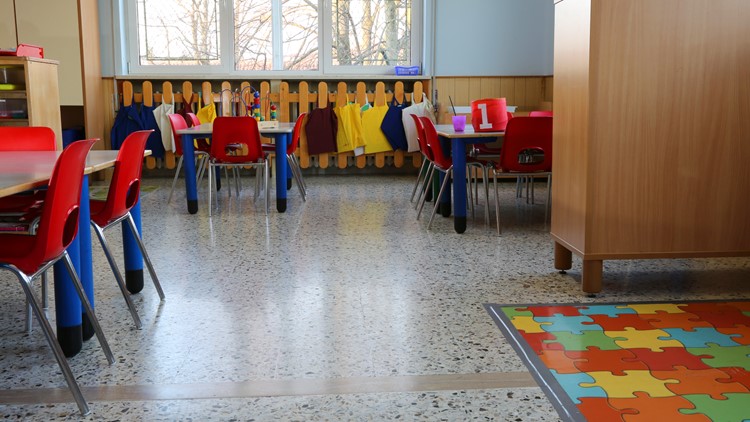AUSTIN, Texas — The nonprofit Children at Risk started its statewide tour on Monday. Leaders with the group say new data shows affordable child care remains out of reach for many Texas families.
Ahead of the upcoming legislative session, which begins in January, the group said it wants to remind lawmakers that child care should be front and center.
"It is time for the state of Texas to prioritize working families and strengthen the economy by investing in the systems," Kim Kofron, the director of Children at Risk, said. "Because when ... working families have the support they need to care for children and provide for their families, our entire economy improves and Texas thrives."
Children at Risk said it's doing what it can, but it only provides scholarships to a fraction of the families who qualify.
The group said 51% of Texas ZIP codes are child care deserts, meaning about 560,000 low-income children don't have access to the child care they need. In Austin, 31 ZIP codes fall into that category.
And though the number of child care centers has gone back to pre-pandemic levels, Children at Risk said family child care homes are still down 18% since 2019. The group said that deficit mainly impacts rural communities and communities of color.
Child care cost solutions in Austin-Travis County
The coalition Affordable Childcare Now says child care costs in Travis County can be over $13,000 annually. The county, the city of Austin and other local organizations are working to help offset those costs, as well as staffing issues.
About a year ago, the Austin City Council changed zoning rules for child care centers. Those businesses can now open in 255% more areas and for less money. At the time, council members said they hoped it would be just the beginning.
"It's certainly one step up and one tool in the tool kit," Councilmember Vanessa Fuentes said. "There's still so much more that our city needs to be doing to truly ensure that every family can afford a day care center for their child."
In the year since that change, Workforce Solutions has added a salary stipend to help child care workers make a living wage in Austin. Right now, the organization uses American Rescue Plan Act funds to help child care workers get the stipend – but that money is running out.
Travis County is trying to fill the gap and, in less than a month, voters will make a final decision on Proposition A. If that measure is approved, property owners would pay another 2.5 cents per $100 valuation on their property taxes. For the average homeowner, that's about $10 per month.
Commissioners say the measure would generate about $75 million for child care and after-school programs.
KVUE has spoken to some parents recently about the measure. Some have told us they need a solution to high child care costs.
"I don't say this lightly: it's nearly impossible to find infant, toddler spots in particular right now," Austin mom Madison Matisse said. "We weren't prepared for this financial reality. It was a second mortgage every month."
Meanwhile, opponents of the proposition say they don't want another tax to pay.
Talks of child care help at the federal level
Child care costs have also been a main topic of the presidential campaigns, including during the recent vice presidential debate.
Vice President Kamala Harris' campaign proposes a child tax credit that aims to make the pandemic-era credit permanent, with even more help. It would raise the credit to $6,000 for newborns, $3,600 for children under the age of 6 and $3,000 for children ages 6 to 17.
Any talks about a credit from former President Donald Trump have been more ambiguous. He and his running mate, U.S. Sen. JD Vance, have said they would bring it back and have mentioned they would use revenue from raised tariffs to offset costs. But they have not revealed a concrete plan.
Vance wasn't present for a vote in Congress that could have passed a different version of the credit.



